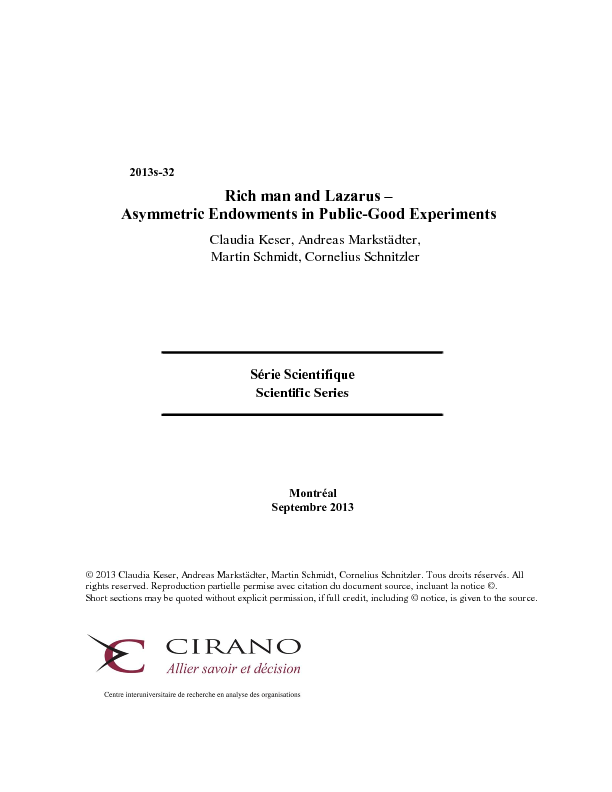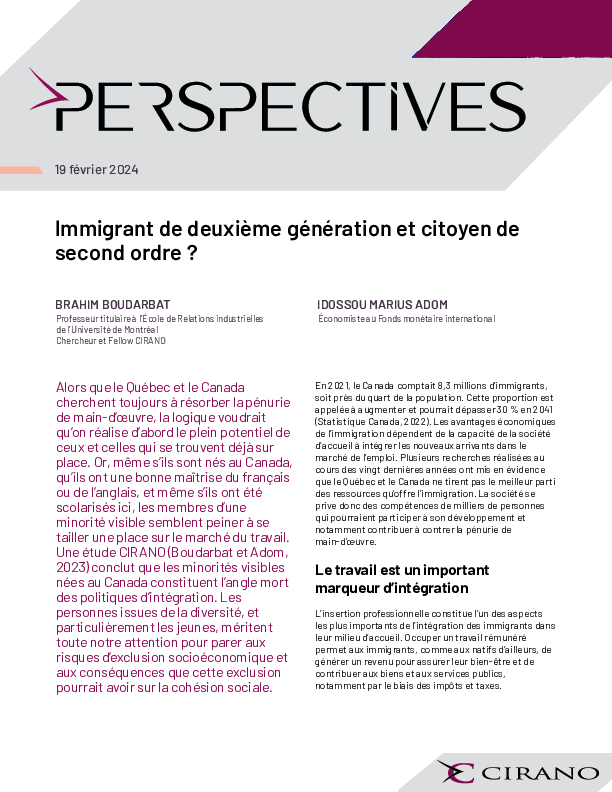Rich man and Lazarus – Asymmetric Endowments in Public-Good Experiments
We compare voluntary contributions to a public good in a symmetric setting to those in a weakly and a strongly asymmetric setting, where the players have different, randomly allocated endowments. We observe that the group-contribution levels are not significantly different between the symmetric and the weakly asymmetric setting. In both situations, participants tend to contribute the same proportion of their respective endowment. In the strongly asymmetric situation, where one of the players has a higher endowment than the three other players together, we observe a significantly lower group contribution than in the other situations. The rich player in this situation does not contribute significantly more than the average contribution of the poor players and thus contributes a significantly lower proportion of the endowment. This player is not as greedy as the rich man in the parable but leaves not more than breadcrumbs to the poor players.
[ - ]




